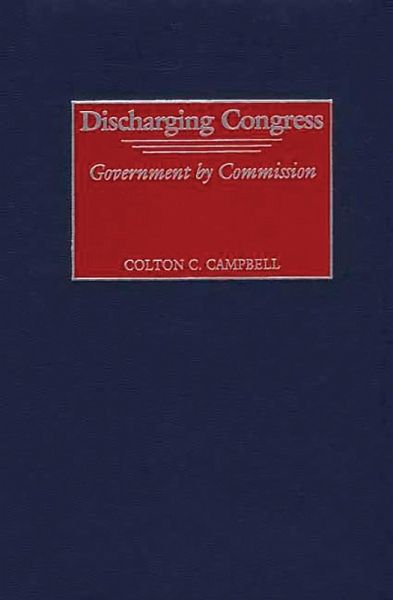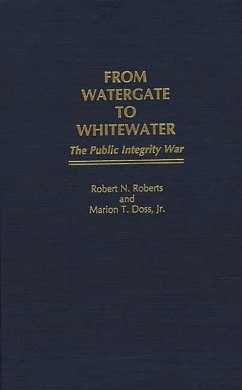
Discharging Congress (eBook, PDF)
Government by Commission
Versandkostenfrei!
Sofort per Download lieferbar
58,95 €
inkl. MwSt.
Weitere Ausgaben:

PAYBACK Punkte
29 °P sammeln!
The creation of temporary, independent advisory bodies that give advice to Congress, is an important yet under-investigated area of congressional delegation. With variations to fit the circumstances, lawmakers entrust commissions to accomplish diverse goals, such as coping with increases in the scope and complexity of legislation, forging consensus, drafting legislation, finessing institutional obstacles, coordinating strategy, and promoting party unity. Campbell investigates why and when Congress formulates policy by commissions rather than by the normal legislative process. He shows that man...
The creation of temporary, independent advisory bodies that give advice to Congress, is an important yet under-investigated area of congressional delegation. With variations to fit the circumstances, lawmakers entrust commissions to accomplish diverse goals, such as coping with increases in the scope and complexity of legislation, forging consensus, drafting legislation, finessing institutional obstacles, coordinating strategy, and promoting party unity. Campbell investigates why and when Congress formulates policy by commissions rather than by the normal legislative process. He shows that many variables go into the decision to entrust those bodies to render non-partisan recommendations. According to lawmakers and their staff, the three primary justifications for choosing to delegate to commission include expertise, workload, and avoidance. Which of these three dominates depends in large part on the politics surrounding a particular issue and the nature of the policy problem. The logic of delegation to each of the three commission types is different. Which reason dominates depends in large part on the politics surrounding the issue and the nature of the legislative policy problem. Scholars, students, and other researchers involved with Congress, American government, and public policy will find the study of particular interest.













